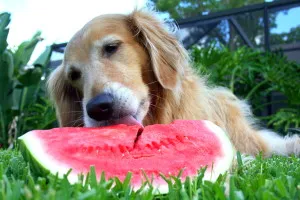Choosing the right food for your Golden Retriever is one of the most crucial decisions you’ll make for their health and well-being. With an overwhelming array of options available, navigating the pet food aisle can be a challenge. Golden Retrievers are known for their sensitive systems and specific dietary needs, making a high-quality diet paramount not only for their overall health but also to boost their immune system and prevent common ailments. A premium Golden Retriever Food isn’t necessarily more expensive; in fact, cheaper, lower-quality foods often require larger serving sizes, ultimately costing you more in the long run. Making an informed choice about your Golden Retriever’s diet is an investment in their long-term health.
A typical adult Golden Retriever usually thrives on about two cups of premium dog food daily, though this can be adjusted based on their activity level and unique metabolism. It’s important to note that Goldens are prone to skin problems, and a diet lacking in essential nutrients can exacerbate these issues, potentially leading to costly veterinary visits. When it comes to sourcing, steer clear of grocery store brands, as they often fall short on the nutritional demands of Golden Retrievers. Instead, visit a dedicated pet store. Furthermore, don’t assume that food from your veterinarian’s office is automatically superior; always read the ingredients list carefully and make your own judgment. Be wary of fancy advertising, as many heavily marketed foods may lack the necessary nutritional value. For instance, some grain-free formulations have been linked to taurine deficiency in Golden Retrievers and other large breeds, which can lead to serious heart conditions like dilated cardiomyopathy. To explore more about what your Golden can eat, consider resources like what human food can golden retrievers eat.
Key Guidelines for Selecting Quality Golden Retriever Food
When searching for the best golden retriever food, several factors should guide your decision to ensure your dog receives optimal nutrition.
Avoid Chemical Preservatives and Harmful Additives
One of the most important aspects is to choose food free of chemical preservatives. Ingredients like Ethoxyquin, BHA, BHT, propylene glycol, or sodium nitrate/nitrite are often suspected carcinogens and should be avoided. Instead, look for golden retriever food preserved naturally with Tocopherols (Vitamins C and E), rosemary, and other herbs. These natural alternatives maintain food freshness without posing potential health risks.
 A person's hand holding a small bowl of dog food with kibble, symbolizing healthy feeding practices.
A person's hand holding a small bowl of dog food with kibble, symbolizing healthy feeding practices.
Check Freshness and Proper Storage
When purchasing naturally preserved foods, always check the “purchase by” date on the bag. Ensure you have several months before this date expires to guarantee freshness. Frequent stores with a good turnover of inventory to ensure you’re getting a fresh bag. Never buy a bag that shows grease stains on the outside, and absolutely never feed moldy dog food to your Golden. Proper storage is also crucial; always store dog food in a tight, airtight container in a cool, dry place. If you only have one dog, consider buying smaller 10-15 pound bags instead of 20-40 pound bags to ensure the food remains fresh until consumed.
Prioritize Meat as the First Ingredient
A high-quality golden retriever food should always list a specific form of meat, such as lamb, chicken, or turkey, as the first ingredient. Avoid foods that list grain as the primary ingredient. Furthermore, look for multiple meat proteins within the first seven ingredients. Protein from various sources (like lamb, chicken, and fish) is generally beneficial, unless your dog has specific protein allergies. Be wary of dog food companies that list several types of grains in the first seven ingredients, as your dog primarily needs animal protein in their diet for proper development and energy.
Steer Clear of Animal Digest and By-Products
It’s vital to avoid golden retriever food that contains “animal digest.” This term often refers to rendered animal intestines, including their contents, which are undesirable. Most by-products are also not beneficial. “By-products” typically include beaks, feet, feathers, heads, and other slaughterhouse waste products that lack significant nutritional value. For example, “poultry by-products” can encompass chicken heads, feathers, feet, and viscera. These components are far from the most nutritious parts of an animal and should not be a staple in your Golden’s diet.
Avoid Sugars, Artificial Colors, and Flavors
Many dog foods are loaded with sugars, artificial colors, and flavors, or excessive added salt. Semi-moist dog foods are particularly notorious for being packed with artificial colors and sugars. These additives offer no nutritional benefit and can contribute to health issues. While added vitamins and minerals are beneficial, they are only effective when applied after the baking process, as heat can destroy their potency. We often recommend a vitamin/mineral supplement, but always consult your veterinarian first. For further reading on different food types, consider articles like pet fresh dog food.
Opt for Human-Grade Ingredients
The best golden retriever food is often made from ingredients suitable for human consumption. Many commercial dog foods contain meat products deemed unfit for human consumption, including meat from diseased livestock, condemned material from slaughterhouses (such as tumors), and disturbingly, some pet foods may even include euthanized pets sold to rendering plants or roadkill. It’s concerning to consider the link between such ingredients and the prevalence of diseases like cancer in dogs. Do not hesitate to contact dog food companies directly and inquire about the grade of meat used in their products. Transparency from manufacturers is a key indicator of quality. You might also be interested in what can dog eat that’s human food for more insights into human-grade ingredients.
Understanding Grains and Grain-Free Options
Many golden retriever food formulas contain grains like brown rice, barley, corn, or wheat. We’ve observed that some Goldens in rescue programs tend to fare poorly on foods containing corn or soy, as these ingredients don’t seem to offer significant benefits to most. Many Goldens are allergic to corn or wheat, so if your dog develops hot spots or skin problems, check their food’s grain content. The quality of grain products varies significantly. Look for whole rice or brown rice, as white rice and ground brewers rice are much lower in nutrients. Beware of “grain fractions” like brewers rice, rice gluten, or corn gluten meal, which are often sweepings from mill floors. Instead, choose whole grains such as oatmeal, brown rice, barley, or whole oats.
Grain-free golden retriever food has gained popularity, marketed as being easier to digest with lower complex carbohydrates. However, a common misconception is that grain-free automatically means low-carb. In many grain-free kibbles, vegetables like potatoes, sweet potatoes, green peas, and tapioca replace grains, making them as high, or even higher, in carbohydrates than grain-based foods. Recent studies have highlighted concerns that peas, beans, pea starch, legumes, potatoes, and sweet potatoes, when replacing grains, can block the function of taurine. Taurine, a crucial sulfuric acid, is essential for healthy cardiovascular function in Golden Retrievers. Untreated taurine deficiency can lead to dilated cardiomyopathy (DCM), congestive heart failure, and potentially be fatal. Therefore, it’s vital to discuss grain-free options with your veterinarian.
Choosing Healthy Treats
Be very selective when it comes to dog treats, as many are loaded with sugars, artificial colors, and preservatives. Opt for biscuits from a local dog bakery or consider making homemade treats. Reputable dog food companies often offer high-quality treats that align with a healthy golden retriever food diet. For instances of an upset stomach, you might want to look into what foods can dogs eat with upset stomach.
 A Golden Retriever enjoying a healthy treat of mango and watermelon, highlighting nutritious options.
A Golden Retriever enjoying a healthy treat of mango and watermelon, highlighting nutritious options.
Managing Your Golden Retriever’s Weight
Is your Golden Retriever overweight? We recommend reducing their regular kibble by one-third and adding half a can of unsalted green beans to each meal. Be cautious of some “diet” dog foods, as they can be loaded with fillers that provide no nutritional value. Green beans, or even canned pumpkin, are healthy alternatives that Goldens typically enjoy. Do not free-feed your Golden; instead, feed a measured amount twice a day. Most adult Goldens thrive on one cup of premium golden retriever food twice daily.
You should be able to easily feel your dog’s ribs, and they should have a visible waistline. Our experience often shows a different perspective on optimal weight compared to some veterinarians, who may allow dogs to carry more weight than is ideal. This might be to avoid offending clients, but allowing your Golden to become overweight can significantly shorten their lifespan. We frequently observe hip problems in Goldens, and maintaining a healthy weight greatly improves their mobility. Fat Goldens are, from our perspective, an epidemic. We routinely receive Goldens into our rescue program that need to lose 30-40 pounds! We have extensive experience in helping them shed this weight. It’s incredibly discouraging when an adoptive home allows the weight to creep back on. While you might think you’re showing love by overfeeding, true love means keeping your Golden at a healthy weight. Remember: Ribs and Waists! If you can’t feel and see them, it’s time to incorporate those green beans! You can find more information about what human food can my dog eat to supplement their diet responsibly.
Conclusion
Ultimately, making informed decisions about your golden retriever food involves carefully reading ingredient labels, consulting your veterinarian, and researching reliable resources. By ensuring your Golden Retriever receives the best nutritional food, you are helping to guarantee they live a long, healthy, and happy life. Investing time in selecting the right diet is one of the most impactful ways you can care for your beloved companion.
References
- Whole Dog Journal. (n.d.). Whole Dog Journal’s Approved Dry Dog Food List. Retrieved from https://www.whole-dog-journal.com/food/whole-dog-journals-approved-dry-dog-food-list/
- Whole Dog Journal. (n.d.). Best Wet Dog Food: How to Find It, Where to Look. Retrieved from https://www.whole-dog-journal.com/issues/21_11/features/Best-Wet-Dog-Food-How-to-Find-It-Where-to-Look_21941-1.html
